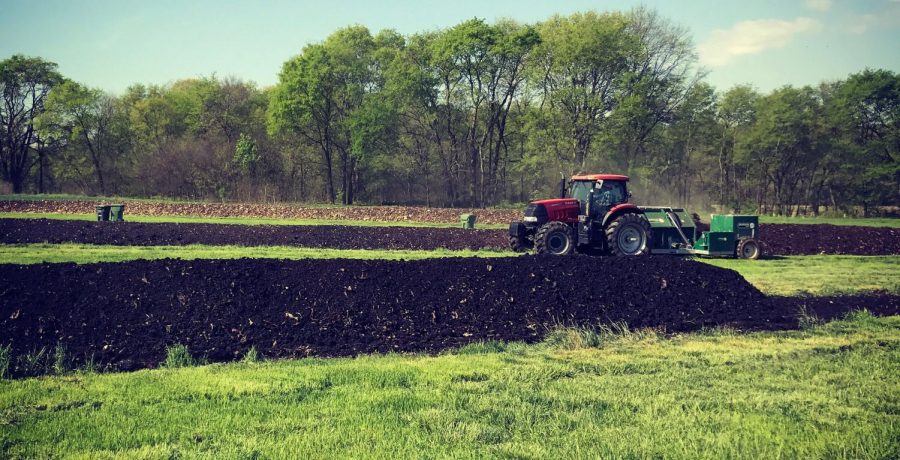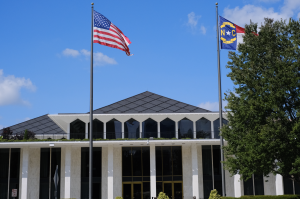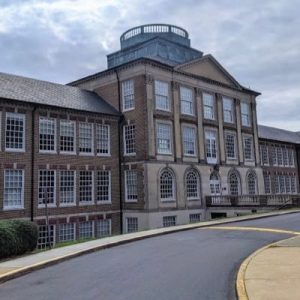Student group brings compost into vogue
The Compost Crew has grown exponentially since its inception in 2018
April 8, 2021
If you’ve ever held a leftover food and been unsure whether it goes in the trash, recycling or compost, fret not, the Compost Crew is here.
Established in 2018, Wake’s Compost Crew pairs student volunteers with environmental activists in an effort to reduce waste. Since its inception, the Compost Crew has been one of the Office of Sustainability’s most successful initiatives.
“I have never seen a program grow so quickly,” Brian Cohen, assistant director for sustainability engagement, said. “The group rapidly grew to over 100 students, and as a result, we were able to assist in many different ways immediately.”
For the past few years, the Compost Crew has worked with program coordinators to find upcoming events on campus where their services would be applicable. When attendees at these events go to throw their trash out, members are there to explain which types of waste go where.
Organic waste collected from the events, such as food scraps and napkins, is picked up by Gallins Family Farm. There, they turn the waste into a sellable product.
Currently, the United States is the global leader in food waste, discarding nearly 40 million tons of food every year. However, several states have recently passed laws restricting the amount of food waste that goes into landfills, sparking a widespread movement that seeks to find an environmentally conscious method of disposing of all that waste.
The Compost Crew is hoping to make its mark on the Wake Forest community by providing students and faculty with access to compost bins.
Although the program got off to a great start, like so many others of its kind, it has been negatively impacted by the COVID-19 pandemic. With the absence of large events at Wake Forest, the group’s leaders have been forced to switch gears in order to achieve their goals.
Anna Loynes, the zero-landfill assistant for the Compost Crew, knows that expanding the program is unrealistic in times like these. To accommodate the COVID-19 guidelines and the inability to host large events, she has had to adapt on the fly.
“The shortage of events has certainly hurt us, but we’re still doing office collections for people who work on campus,” Loynes said. “We’ve also started a paper towel pilot in Palmer Hall and Piccolo Hall where we replace trash cans with compost bins in bathrooms.”
Also, the Compost Crew has started a new pilot program in North Campus Apartments. It is an optional program in which participating students are given compost bins to dispose their organic materials.
At the moment, 22 suites in NCA are involved, from which the Compost Crew is collecting about 200 pounds of compost a month.
Sophomore and North Campus Apartment resident Sean Muller said that while he hasn’t heard of the Compost Crew, he uses the compost bins regularly and has noticed similar tendencies amongst his peers
“Students are truly starting to recognize how important it is to take care of the environment,” Muller said.
While composting may sound simple, the threat of contamination stands in the way of expansion.
“The worst-case scenario for us is when people put stuff that isn’t compost in the compost bin,” Loynes said. “It’s what we call contamination, and Gallins Farm will fine us for it.”
As frustrating as it may be, the group’s officials know that challenges are inevitable when trying to effect change on a larger scale. Despite a tumultuous year, they have kept their priorities in order.
“We want to teach others the benefits of composting, and in doing so normalize this type of behavior on campus,” Cohen said.
Julia Stevens, the former student leader of the Compost Crew, witnessed the program’s growth firsthand during her time as a student. She believes that Wake Forest is on a good trajectory toward sustainability.
“When I was at Wake Forest, people were really starting to become mindful about waste,” Stevens said. “During my senior year, students were separating trash correctly without my help, which was very different from [what I saw] my freshman year.”
The Crew hopes to place compost bins in all residence halls on campus once the pandemic is over. Until then, they will do their best to encourage waste reduction and espouse the message that anyone can make a difference in the effort to save the planet.
“You don’t need to be a hero,” Cohen said. “Just doing your part to help is going to influence others to do the same, and the impact will be noticeable.”












